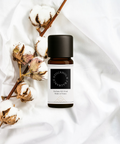The psychology behind scent and smell is deeply connected to memory, emotions, perception, and even behavior. Here’s a look at how it works:
1. Olfactory System and the Brain
• Smell is processed through the olfactory system, which is unique in that it bypasses the brain’s thalamus and directly connects to the limbic system, which is the brain's emotional center.
• This connection means that scents have a direct and powerful impact on our emotional processing and memory formation. The limbic system includes the amygdala (which processes emotions) and the hippocampus (which is involved in memory). That’s why a familiar scent can immediately trigger memories and emotions.
2. Emotional and Memory Connections
• Proust Effect: Named after the writer Marcel Proust, who vividly described how a particular scent brought back memories, this effect highlights how a scent can unlock powerful memories, often tied to emotions. Smell can transport us back to moments from childhood or significant life events in a way that’s more intense than other senses.
• Emotional Amplifier: Scent is deeply tied to emotional recall. Pleasant smells like vanilla, lavender, or cinnamon can evoke a sense of warmth or comfort, while unpleasant smells can instantly cause discomfort or alert us to potential danger.
3. Scent’s Influence on Mood and Behavior
• Calming and Energizing Effects: Certain scents can alter mood and energy levels. For instance, lavender is known for its calming properties, while peppermint or citrus scents are often used to energize and increase alertness.
• Subconscious Influence: Scent can influence our behavior without us realizing it. Retail and hospitality industries use specific scents (like fresh linen or floral notes) to create welcoming environments, subtly influencing customers’ perceptions and behaviors.
• Appetite and Food Perception: Smell is crucial to how we experience taste, and aromas can stimulate or suppress appetite. Studies show that smells associated with freshness, like mint or basil, can make foods more appealing, while harsh odors can do the opposite.
4. Individual Differences in Scent Perception
• Cultural and Personal Associations: People’s associations with smells are shaped by personal and cultural experiences. For example, spices or perfumes common in one culture may evoke a sense of home and comfort, while for others, these same scents may seem foreign or even unpleasant.
• Genetic Variability: People differ in their sensitivity to certain scents based on genetic variations. This genetic factor can influence individual preferences and aversions to certain smells.
5. Scent and Social Interactions
• Pheromones: Although pheromones' impact on humans is less clear than in other animals, subtle scent cues can influence attraction and social bonding. There’s evidence suggesting that people may subconsciously be drawn to scents that reflect compatible immune system genes, potentially influencing romantic attraction.
• Social Memory: Smell plays a role in recognizing and remembering people. We unconsciously associate people with particular scents, such as their perfume or the smell of their home. This is why specific smells may remind us of someone, evoking emotional responses tied to them.
6. Marketing and Scent Branding
• Companies use scent strategically in what’s called “scent branding.” By creating a consistent, signature scent associated with their brand, companies aim to strengthen brand recognition and enhance customer loyalty. For instance, some hotels have signature scents in their lobbies to create a welcoming and memorable environment, hoping guests will associate that aroma with positive memories of their stay.
7. Therapeutic Applications (Aromatherapy)
• Aromatherapy leverages the psychological effects of scent to promote well-being. Essential oils like eucalyptus, tea tree, and lavender are used for their perceived calming, invigorating, or immune-boosting properties. Although aromatherapy has mixed scientific support, many people report positive mood and relaxation benefits from its use, possibly due to scent’s emotional and psychological impacts.
In summary, scent has a unique power to evoke memories, affect mood, shape perceptions, and even influence behaviors. It operates largely on a subconscious level, connecting directly with our brain’s emotional and memory centers, which explains why scents can feel so deeply personal and evocative.




